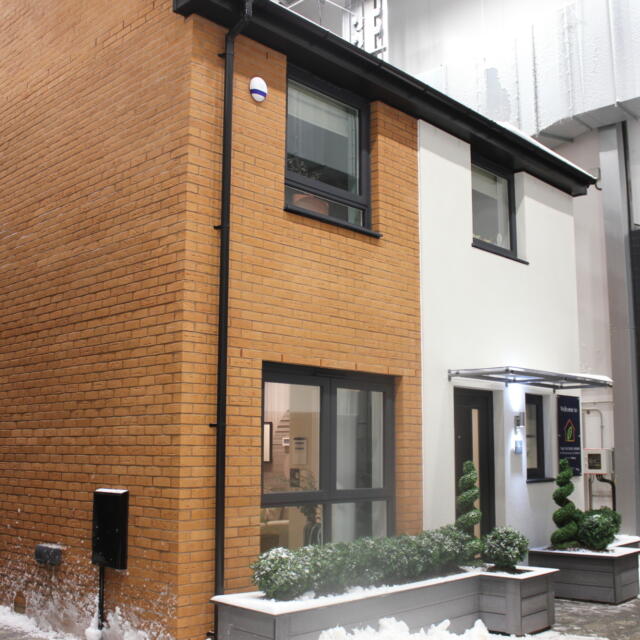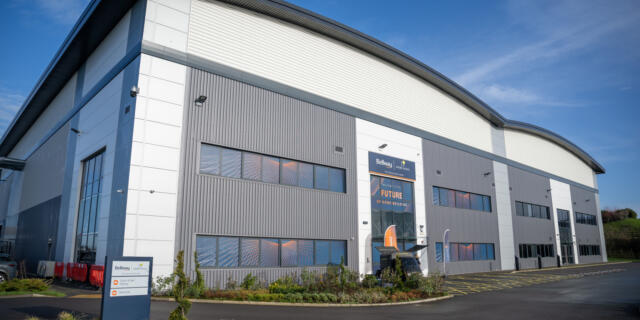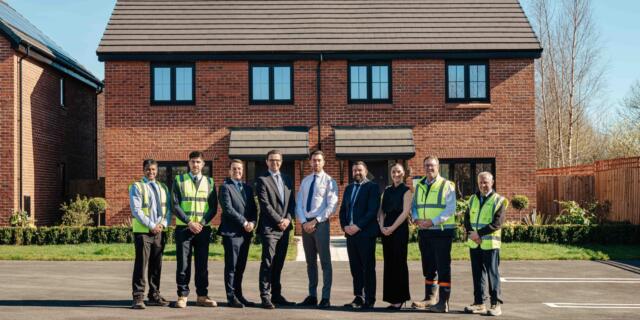Bellway unveils The Future Home at The University of Salford
Bellway has unveiled its Future Home at The University of Salford, an experimental eco house built to trial low-carbon technologies.
The house has been constructed within a chamber at Energy House 2.0, the university’s £16 million research facility which was part funded by the European Regional Development Fund.
Guests will be given tours of The Future Home during a VIP launch event to be hosted by the university on Thursday and Friday.
Inside the chamber, researchers will be able to recreate most of the world’s climate conditions, including wind, rain, snow and solar radiation, at temperatures ranging from -20°C to +40°C.
This will form part of a series of tests that will take more than a year to complete and the results will influence how homes are built in the future.
Bellway’s Future Home will trial a range of innovations, including three types of heating, two air source heat pumps, mechanical ventilation, solar power with battery storage, enhanced insulation, double versus triple glazing, precast flooring, a shower tray which recaptures heat, and a smart control which learns when you need to heat your home.
Sensors located around the house will measure the difference between the energy it generates and the energy it loses in different climates. They will also gauge the comfort of the home.
The Future Home and the wider Energy House 2.0 project will pioneer new ways to build homes, as well as teaching us how we can live in a more environmentally friendly and cost-conscious way.
Jamie Bursnell, Group Innovation and Technical Manager for Bellway, said: “The Future Home and the wider Energy House 2.0 project will pioneer new ways to build homes, as well as teaching us how we can live in a more environmentally friendly and cost-conscious way.
“We have collaborated with many of our suppliers to bring together a wide variety of innovations that can reduce the carbon emissions generated by our homes. The testing will teach us more about which are most effective in varying climate conditions.
“In addition to limiting carbon emissions, we understand that people who buy our homes will be conscious of their energy bills. How we manage the cost of running the home will therefore be an important component of the research.”
The Future Home will be built to meet the Government’s Future Homes and Buildings Standards, which will take effect from 2025.
Testing at Energy House 2.0 is scheduled to begin in February, with the first results due later this year.
To find out more about Energy House 2.0 see http://www.energyhouse2.com/.
You can find out more about Bellway's Future Home @ The University of Salford here http://www.bellway.co.uk/the-f...









